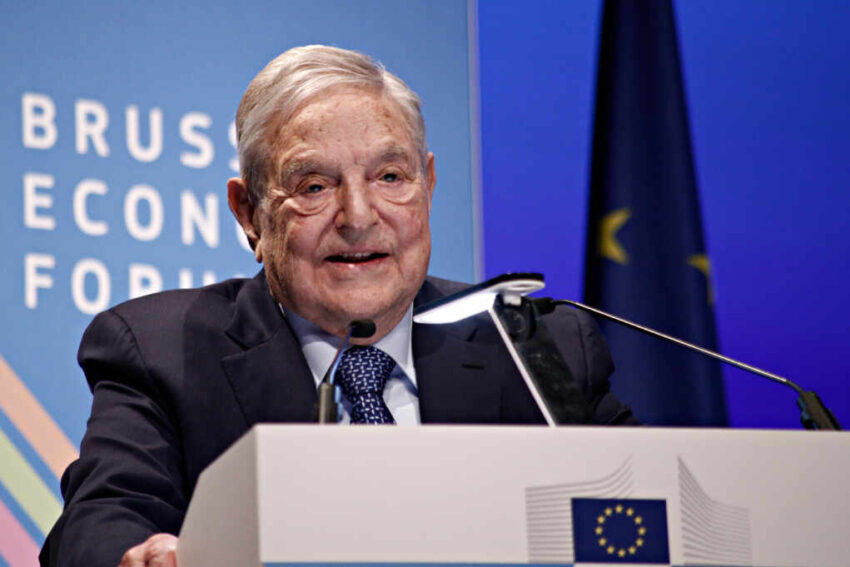Former President Donald Trump demanded criminal charges against George Soros and his son without offering evidence, intensifying political polarization.
At a Glance
- On April 24, 2024, Trump accused George and Alexander Soros of organizing violent protests.
- No evidence has been presented to support Trump’s claims.
- Soros has been a frequent target of conspiracy theories documented by the ADL and Georgetown University.
- The Open Society Foundations report more than $19 billion in global philanthropic investments since 1979.
- Experts warn that false accusations can increase risks of harassment and political division.
Trump’s Accusations Against Soros
On April 24, 2024, former President Donald Trump called for criminal charges against billionaire philanthropist George Soros and his son, Alexander Soros. Speaking at a campaign event, Trump alleged—without presenting any evidence—that they were responsible for orchestrating violent protests in the United States. The statement extended a long-standing narrative in which Soros is regularly positioned as a central villain within certain conservative and right-wing circles.
Researchers at the Anti-Defamation League (ADL) and Georgetown University’s Berkley Center for Religion, Peace, and World Affairs have documented how Soros has frequently been depicted as a shadowy financier behind progressive movements, despite the lack of substantiation. This pattern of attribution underscores the enduring presence of conspiracy theories in political rhetoric.
Watch now: Trump Accuses Soros of Protest Chaos · YouTube
The Polarizing Effect of Trump’s Statement
Trump’s remarks added to an already polarized political climate. At the time of his comments, he was himself facing multiple legal proceedings, amplifying the tension surrounding national political discourse. Analysts such as Kathleen Hall Jamieson of the University of Pennsylvania’s Annenberg Public Policy Center note that these kinds of accusations may mobilize partisan supporters but simultaneously deepen mistrust in institutions.
George Soros’s philanthropic work through the Open Society Foundations spans more than four decades, with the organization reporting global investments exceeding $19 billion since 1979. Initiatives have supported human rights advocacy, independent journalism, and governance programs. While supporters frame these contributions as reinforcing democratic resilience, critics often characterize them as undue influence, sometimes invoking antisemitic tropes. This tension between public benefit and political suspicion has become a recurrent theme in debates surrounding Soros’s influence.
Implications for Civil Society
Experts caution that high-profile, evidence-free accusations can lead to consequences beyond political rhetoric. Heidi Beirich, co-founder of the Global Project Against Hate and Extremism, has warned that such allegations risk inciting harassment or violence against individuals who are portrayed as orchestrating national unrest.
The broader implications extend to philanthropy itself. As Soros and his foundations continue to be politicized, charitable organizations may face heightened scrutiny. This could discourage both donors and beneficiaries, narrowing the space for civic engagement and civil society activity. In turn, such pressures may erode trust in public dialogue and weaken democratic resilience.
The recurring cycle of unsubstantiated claims not only places individuals at personal risk but also injects instability into the broader social fabric. Whether such narratives resonate more strongly with partisan supporters or lose traction over time remains uncertain, but their impact on the public sphere is already visible.
Sources
Click this link for the original source of this article.
Author: Editor
This content is courtesy of, and owned and copyrighted by, https://deepstatetribunal.com and its author. This content is made available by use of the public RSS feed offered by the host site and is used for educational purposes only. If you are the author or represent the host site and would like this content removed now and in the future, please contact USSANews.com using the email address in the Contact page found in the website menu.





